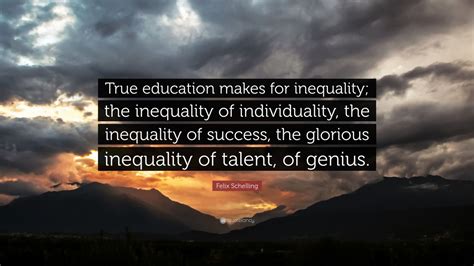A Quote by Joseph Stiglitz
There have always been two theories about inequality. One is that it reflects just deserts. The other is that there are large elements of exploitation and inequality of opportunities. The evidence is overwhelmingly that the increase in inequality is associated with those negative factors. If it were all social contribution, then when the top did better, they would be contributing to everybody's well-being. That trickle-down hasn't happened. We've seen median income, people in the middle, actually worse off than they were 25 years ago.
Quote Topics
About
Actually
Always
Associated
Been
Being
Better
Contributing
Contribution
Did
Down
Elements
Everybody
Evidence
Exploitation
Factors
Happened
Income
Increase
Inequality
Just
Large
Median
Middle
Negative
Off
Opportunities
Other
People
Reflects
Seen
Social
Than
Then
Theories
Those
Top
Trickle
Two
Well
Well-Being
Were
Worse
Would
Would Be
Years
Years Ago
Related Quotes
Most people believe that inequality is rising - and indeed it has been rising for a while in a number of rich countries. And there is lots of talk and realization of this. It's harder to understand that at the same time, you can actually have global inequality going down. Technically speaking, national inequality can increase in every single country and yet global inequality can go down. And why it is going down is because very large, populous, and relatively poor countries like India and China are growing quite fast.
we should reject the attempt to divert the national conversation away from soaring inequality toward the alleged moral failings of those Americans being left behind. Traditional values aren't as crucial as social conservatives would have you believe ? and, in any case, the social changes taking place in America's working class are overwhelmingly the consequence of sharply rising inequality, not its cause.
Global inequality is such an abstract concept, simply because there is no global government. Telling people in rich countries who have had no increase in real incomes, stagnant median wages and so on, that on the other hand global inequality is going down because people who are much poorer than them are getting richer - it's something that maybe they would like in an abstract sense, because everyone is happy there are fewer poor Chinese, but you may not be as happy if these Chinese are taking your job.
Egalitarians create the most dangerous inequality of all - inequality of power. Allowing politicians to determine what all other human beings will be allowed to earn is one of the most reckless gambles imaginable. Like the income tax, it may start off being applied only to the rich but it will inevitably reach us all.
In the U.S. when people like me started writing things about inequality, the economic journals had no classification for inequality. I couldn't find where to submit my inequality papers because there was no such topic. There was welfare, there was health issues, there was trade obviously. Finance had hundreds of sub groups.































